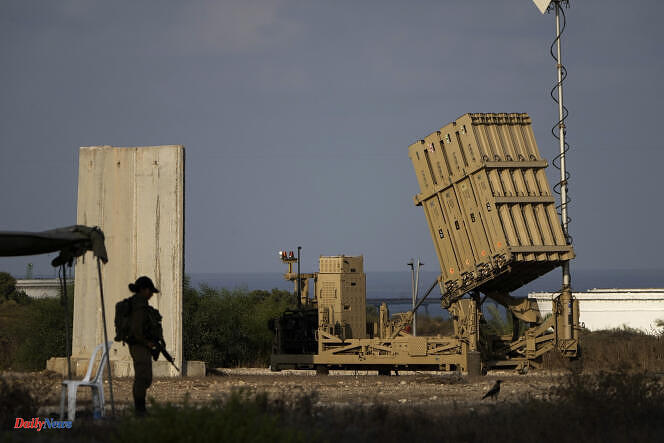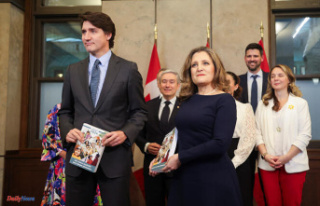Israel wants to make Iran pay the price for its unprecedented attack on Israeli territory, despite international calls for restraint, including from its American ally, which announced new sanctions against the Islamic Republic.
In Tehran, President Ebrahim Raïssi warned on Tuesday April 16 that “the slightest action” by Israel against “the interests of Iran” would provoke “a severe, widespread and painful response” from his country, in a region already under tension with the war in the Gaza Strip where bombings continued into the night.
In this context, the United Nations (UN) Security Council must decide on Thursday on a request from the Palestinians to become a full member state of the United Nations, several diplomatic sources announced overnight. At the beginning of April, the Palestinian Authority relaunched a procedure activated in 2011, but which was unsuccessful due to opposition from the United States. The Arab group issued a statement Tuesday evening affirming its “unwavering support” for the Palestinian request, but it once again appears destined to run into a U.S. veto.
Twelve days after a deadly strike against its consulate in Damascus on April 1, blamed on Israel, Iran launched a drone and missile attack against Israeli territory on Saturday evening, the first ever carried out from Iranian soil. Almost all of the 350 devices were intercepted with the help of the United States and other allied countries, said Israel, which reported injuries.
“We cannot stand idly by in the face of such aggression, Iran will not emerge unscathed” after its attack, said army spokesperson Daniel Hagari. “We will respond when, where and how we choose.” Just after its attack, Iran claimed to have acted "by exercising its right to self-defense" following the strike which destroyed its consulate in Damascus and cost the lives of two senior Iranian officers, among others, and said it was considering “case closed.”
The United States, Israel's unwavering ally, quickly made it known that it did not want "an extended war with Iran" and that it would not participate in an Israeli response, with Washington preferring to strengthen its sanctions against Tehran, the White House announced Tuesday evening.
Expanding sanctions against Iran
“In the coming days, the United States will impose new sanctions targeting Iran, including its drone and missile programs”, its Revolutionary Guard Corps and its Ministry of Defense, detailed Jake Sullivan, the advisor to the national security of the president, Joe Biden. These new sanctions will “increase the continued pressure exerted on Iran in order to contain and deteriorate its military capabilities,” added Mr. Sullivan, specifying that the United States expected to see its allies do the same.
The European Union (EU) is considering broadening the scope of its sanctions already in place against Iran, said Tuesday the head of EU diplomacy, Josep Borrell. The idea would be, for example, to extend to other types of weapons, such as missiles, the sanctions already adopted to prohibit the export from the EU to Iran of components used in the manufacture of drones.
German Foreign Minister Annalena Baerbock, expected in Israel on Wednesday, pleaded on Tuesday for new EU sanctions after the Iranian attack. After obtaining the support of several allies in intercepting the missiles, Benjamin Netanyahu called on the international community to “remain united” in the face of “Iranian aggression, which threatens world peace”.
Taking the opposite view of Westerners who condemned the weekend's Iranian attack, Turkish President Recep Tayyip Erdogan accused Mr. Netanyahu of being "the main person responsible." The strike on the Iranian consulate was “the straw that broke the camel’s back,” he said.
Iran had until now refrained from attacking Israel head-on and opposed it through its allies, the Houthi rebels – two drones launched from Yemen were again intercepted on Tuesday by the American army, according to the Pentagon – or Hezbollah.
This Shiite movement claimed responsibility on Tuesday for an attack with explosive drones launched from Lebanon on Israeli positions, then announced the death of three of its members in Israeli strikes. The Israeli army confirmed that it had killed three members of Hezbollah in airstrikes, including one at the head of a unit responsible for rockets and missiles.
Clashes on the Lebanese-Israeli border have been almost daily since the start, more than six months ago, of the war between Israel and the Palestinian Islamist movement Hamas, a member, like Hezbollah, of the “axis of resistance”. , a grouping of armed movements supported by Iran and hostile to the Jewish state.












